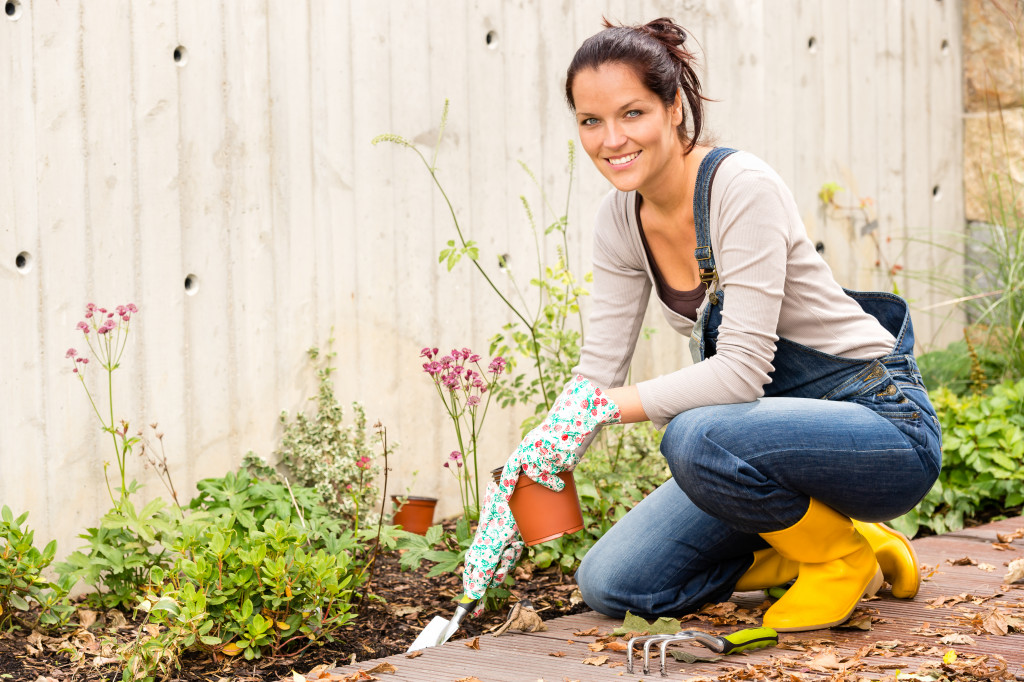Although gardening is a popular hobby mostly among adults, it’s a pastime that would be best shared with children.
Rather than bonding over TV shows or computer games, families could spend off-the-grid time growing plants. It’s a waste if you’re spending money on maintaining your landscape when your family could not enjoy your plants by directly interacting with them.
Gardening has many benefits. It’s a good way for adults to release stress as the activities involved more or less follow a routine. But other than the relaxing effect of repetitive actions, studies are being conducted on soil microbes that might affect antidepressants. So, getting your hands dirty could make you biologically and mentally happy.
For children who don’t have the baggage of stress yet, gardening could be considered play. In today’s generation of digital natives, playing has mostly revolved around phones, tablets, computer screens. While the games of before, like tag or hide-and-seek, may no longer be that appealing to children who prefer spending time on their own, gardening could be a way to get them rolling in the dirt. There is also much more to it than just being fun.
Practical learning
The regular watering, pruning, and checking for pests train children in following schedules. They could not skip these important activities because plants could not be recovered once they die.
Gardening could also make children more environmentally aware. This is especially if you urge them to study the plants they are growing. What plants are endemic to your state? What could potentially harm other plants when grown together? They will have a rough idea of how ecosystems thrive.
Together with skills in growing a plant, the children could also be taught the different uses of plants other than their decorative aspects. In fact, it would be better to teach children how to grow herbs and edible greens to be more practical. They would know how to grow food themselves so that they could discern food options in the market or value food security in the future.
Appreciating organic farming
With caring for nature, teaching children the safety of organically grown vegetables would be a good complement to encourage a generation that would work for environmentally sustainable options. Children could learn how to make compost, how mulching is done, and even reusing household items as gardening tools. If today’s children practice recycling and composting, they would produce less waste and consume fewer resources in the future.
General lessons in life

The various gardening activities could also be related to life lessons that children could bring with them as they grow old.
Deceptive appearances
The first thing newbies need to learn is how to differentiate the seedlings from the weeds. There would be no problem if the plant is already a fully-grown bush, or at least it has gotten beyond its vegetative development stage. But if you’re growing from seeds, a seedling might look the same with some weeds in its first few days or weeks. If you don’t know how your plant would look like, you might end up uprooting them instead of the weeds. It’s also not recommended leaving the weeds on the garden plot as they would compete for the nutrients or could end up choking your plants.
Applied to life beyond the garden, options could look the same. Some could even look more appealing because of their promises. Like weeds that grow faster than many plants, we might mistake them to be better options. If we don’t discern well, we will end up struggling with bad investments. It’s like tending a plot of weeds as we’ve already discarded the slow-growing but fruitful ventures.
Different needs of individuals
Each plant behaves differently given varying amounts of water and exposure to sunlight. It would be good for children to learn it while understanding that people are also like plants. Each individual has different needs and different wants. Although some plants may look the same, they might react differently to different environments. Similarly, people should not be stereotyped. Although some may have the same physical characteristics, each individual is unique.
Staying grounded
Gardening necessarily requires digging in the dirt. It somehow grounds a person, reminding that while life grows out of the soil, we also go back to dirt. No matter our lofty aspirations, we all will wither and become part of the earth again. It’s comparable to beautiful blooms and the copious leaves of trees that eventually fall after reaching their prime.
If nothing else, gardening reminds us that our lives are so much better when shared with other living things. The cool temperatures and better air quality brought by plants are only a few of the numerous benefits we get when we coexist harmoniously. Children who grow up appreciating these things will become adults who will value the earth more than we ever had.

